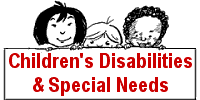 |

| |
|
| ||
Eczema And The Control Of This Skin ConditionExzema causes and treatmentsBy: Scott Michaels Eczema is an inflammatory, chronic, noncontagious disease of the skin caused by allergy and hypersensitivity. The term is loosely used to include many skin conditions more properly included under dermatitis. Eczema is characterized by a number of cutaneous lesions, such as macules, papules, pustules, vesicles, scales, and crusts. Macules are nonelevated skin spots. Papules are hard, circular, and elevated. Pustules are papular like lesions that contain pus, and vesicles are small skin blisters that contain fluid. Eczematous lesions are usually accompanied by an exudation of serous fluid and by intense itching. One-third to one-half of all cutaneous conditions are eczematous. There is no known cure for eczema, but new treatments are helping people to manage, and even prevent flares, better than ever before. Treatment is most effective when people with eczema work closely with a physician, preferably a dermatologist, who will customize a treatment approach based on the person's age, symptoms, and overall health. With the right treatment, most flares can be brought under control in less than three weeks. In more severe cases of eczema, where other treatments have failed, systemic steroids may be used. Instead of applying the steroidal medication to the top of the skin, it is injected into the body, or taken in pill form. These medications should only be used for a short time. Side effects can include skin damage, weakened bones, high blood sugar and/or blood pressure, infections, and cataracts. It is also dangerous to stop systemic corticosteroids abruptly, and patients must work closely with a doctor when changing doses or stopping treatment. Antibiotics can be prescribed by a doctor to treat secondary infections associated with eczema. Medications used to fight infection can come in ointment or pill form and are taken for a set period of time. Sedating antihistamines, which are best to take at bedtime, can help ease severe itching associated with eczema, and help restless sleepers and "scratchers" to sleep. The sedating antihistamines are more effective at relieving itching than the newer, non-sedating antihistamines, but these drugs cause drowsiness, and can affect an adult's ability to work and think, and childrens' ability to learn if taken during the day. Phototherapy uses ultraviolet A or B light waves, and is reserved for children over 12 and adults. It is very much like a tanning bed, and, like tanning beds, can cause skin cancer if used too much, for too long. Doctors use the minimum exposure necessary to ease itching and reduce inflammation. In severe cases of eczema that do not respond to any other treatment, an immunosuppressive drug, like cyclosporine, may be used for a short time although the safety and effectiveness of cyclosporin in children has not been clearly established by clinical trials. These drugs block the production of some of the body's immune cells and curb the effect of others. They can provide relief from very serious eczema flares, but this improvement while on the drug often does not continue after the drug course is over. Side effects include hypertension and kidney problems, nausea, tingling or numbness, headaches, and a possible increase in cancer risk. Keeping the skin happy and healthy is the first rule of good eczema care. This includes avoiding flare triggers, and sticking to a skin care routine that keeps the skin moisturized, and minimizes itchiness. Still, flares do happen. If inflammation cannot be reduced with good lifestyle and skin care habits alone, there are a wide variety of both over-the-counter and prescription medications available to manage the flares. Article Source: http://www.NewArticlesOnline.com There is no known cure for eczemahttp://www.eczemacontrol.info/ but new treatments are helping people to manage, and even prevent flares, better than ever before. |
|
|
Allergy Articles Allergy Resources Book Reviews |
Comeunity : Parenting | Adoption | Special Needs
Comeunity www.comeunity.com Parenting Support for Your Unique Family